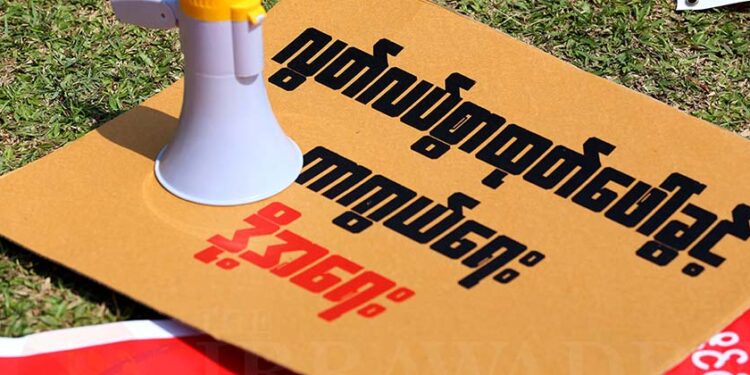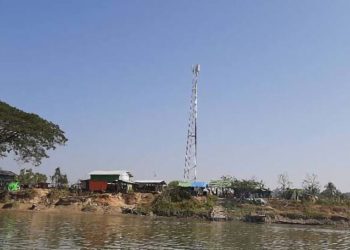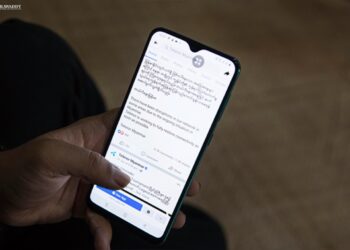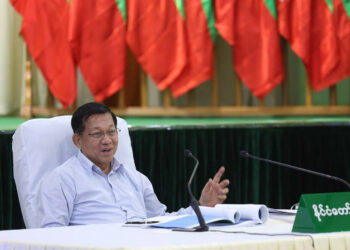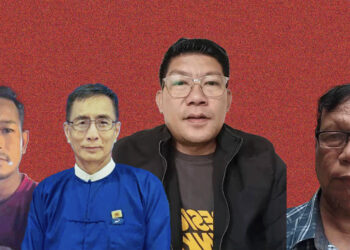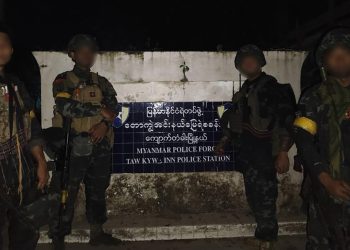YANGON—Changes to the Telecommunications Law have done little to halt its use by politicians and officials to silence their critics, with 62 legal cases having been filed under Article 66 (d) of the controversial legislation since it was amended in 2017.
Of those cases, 20 were filed against perceived critics by lawmakers from the ruling National League for Democracy (NLD) and government officials, and one similar case was filed by the military, according to Athan, an organization that advocates for freedom of expression.
The changes to the law were introduced in August last year following months of outcry over the growing number of defamation cases opened under the legislation.
Dozens of civil society organizations and free-speech advocates called on the government to repeal Article 66 (d), the most controversial provision of the law, but it remains in place despite the amendments.
Article 66 (d) has been used in recent years to prosecute individuals for “online defamation”, including members of the media, some of whom have been detained and jailed. According to Athan, 29 reporters are currently on trial for Article 66 (d)-related offenses.
In the year and four months between the time the NLD came to power and the passage of the amendments, 90 cases were filed under the legislation. This compares to 11 cases under former President U Thein Sein’s government from the time the law was enacted in 2013 until early 2016.
Maung Saungkha, founder and executive director at Athan, said the government chose to ignore civil society groups’ recommendations to scrap Article 66 (d). As a result, he said, the number of cases filed under the provision had grown despite the amendments, with lawmakers and authorities abusing the article to stifle dissent.
A perceived backsliding on freedom of expression has been one of the major criticisms leveled at the NLD-led government since it came to power in 2016 amid high public expectations that it would take significant steps to advance such freedoms.
In a recent case, the Yangon Regional Government led by Chief Minister U Phyo Min Thein filed a controversial lawsuit against three journalists from Eleven Media under Article 505 (b) of the Penal Code for publishing a story it claimed included incorrect information about the government. The article accused the Yangon government of wasting public money through mismanagement.
Given that the Eleven Media story was based on lawmakers’ discussions of the city budget in the Yangon Parliament, the lawsuit attracted serious criticism as an inappropriately harsh reaction for a democratic government, and was interpreted as a threat to all those seeking to scrutinize the government’s activities, and to freedom of expression in general.
Maung Saungkha said the fact that the NLD lost seats in Saturday’s by-election was evidence of the public’s dissatisfaction with the party, adding that the government needed to implement further legislative reforms.
“The NLD government should learn the lesson of the by-election results and amend repressive laws during the remainder of its tenure,” he said.


